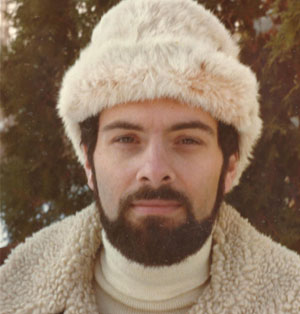About
 Roger T. Conant
Roger T. Conant
Roger T. Conant is a historian and filmmaker specializing in the cultural heritage of East Central Europe. Between 1989-99, as a Fulbright Exchange Scholar and U.S. Department of Education grantee, he documented the collections of over 30 museums, archives and libraries in Hungary, Slovakia and the Czech Republic for the production of university-level tele-courses for academic credit.
From 1978 to 1988 he was a Research Associate at the University of Pittsburgh’s Center for International Studies where he taught courses on Soviet and East European cinema and directed the Center’s Media Program. His largest public history project, "The Polish Phoenix Multi-Media Experience "traveled to 70 cities across 14 states and the District of Columbia (including a special presentation at the National Press Club). A sequel, the "Poland: 1000 Years of History and Culture Video Series," received special recognition from the Polish American Historical Association, Poland’s State Committee for Cinematography and most recently the Polish Ambassador’s “Amicus Poloniae” award for its outstanding contribution to Polish Studies.
From 1989 to 1994, the Russian & East European Institute and Department of Central Eurasian Studies at Indiana University—Bloomington appointed him Research Associate and off-campus project director of “Hungary: A Video History.” Extending his coverage of the Visegrád countries, he wrote, directed and produced a definitive three-part video series on Hungary in cooperation with that nation’s Academy of Sciences’ Institute of History, the National Szechenyi Library and Magyar TV which was broadcast to a European-wide audience over the Eutelsatellite system. The scholarship and artistic quality of "Hungary: A Video History" was warmly received by leading area specialists.
He is the author of The Political Poetry and Ideology of F.I. Tiutchev (Ardis, 1983) and is currently working on a concise history of Slovakia as well as editing a handbook on Polish history. Articles on “The Life & Times of John A. Nicolopoulos” and “The Greek Heroic Ideal are scheduled for publication in Balkanistica (2025, 2026). Other media creations include two slide/tape modules: "Socialist Realism in the USSR & China" and "Chinese Art After Mao" in collaboration with the Canadian sinologist, Ralph C. Croizier.
The diversity of his research topics has ranged from art and ideology in the USSR, China, and Nazi Germany to the “Balkan Heroic Ideal,” Eastern European/Soviet cinema, East Europe’s relationship with Western civilization from medieval to modern times and the influences of national traditions in the waging of WWII. Many of his most recent articles on topics pertaining to American history have appeared in the U.S. Capitol publication, Skylights.
Since 1979, he has pioneered the development of interdisciplinary media resources aimed at promoting a greater understanding of East Central Europe’s cultural and historical heritage. His analytical and synthetic abilities, media expertise and objective scholarship in presenting a civilizational overview both to students and a broad public won recognition from senior scholars and federally funded grants from National Endowment for the Humanities and U.S. Department of Education. Three countries in the region. Poland, Hungary, and Slovakia offered maximum cooperation in placing their most important cultural institutions at his disposal to document and interpret their national histories for American as well as other foreign audiences.